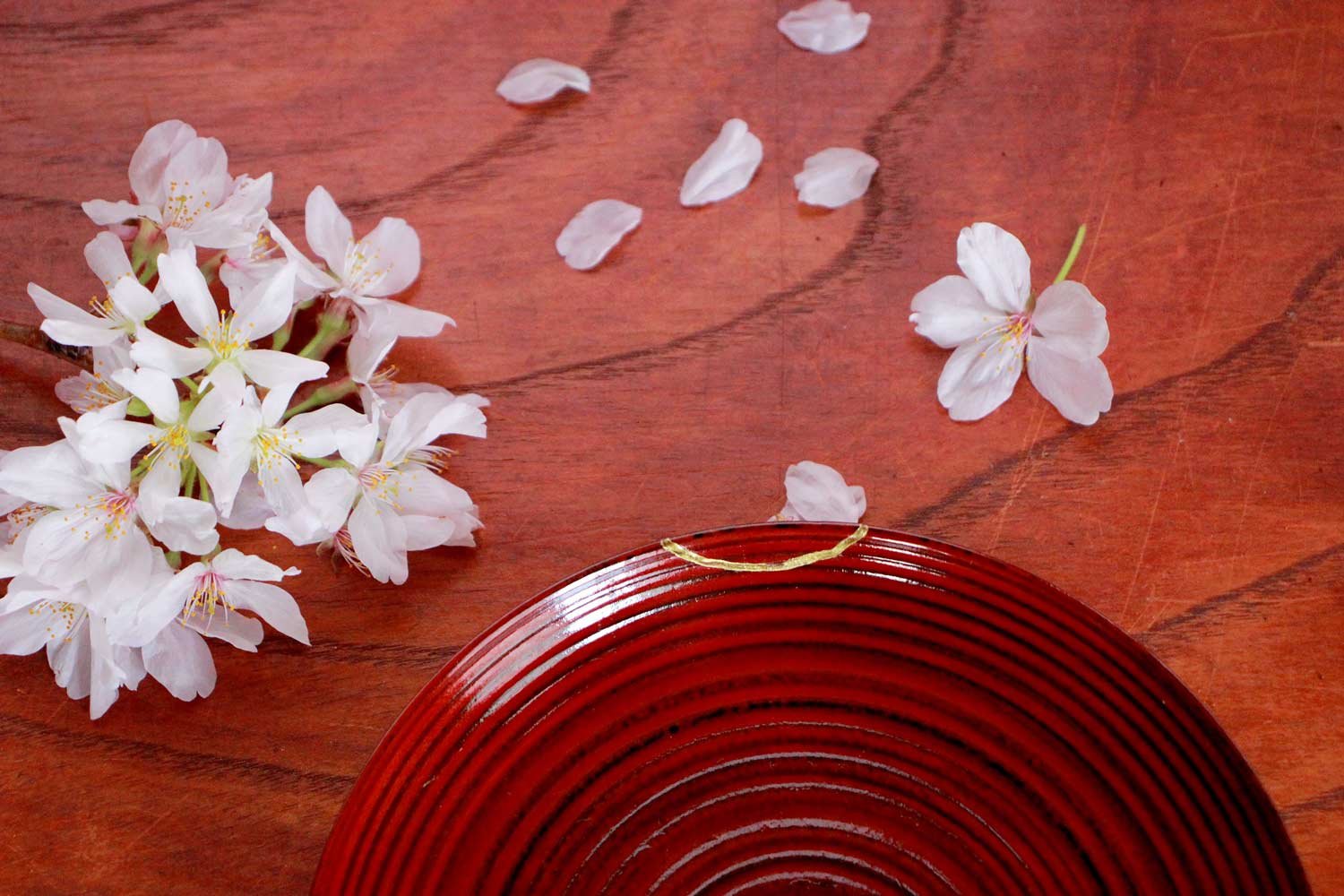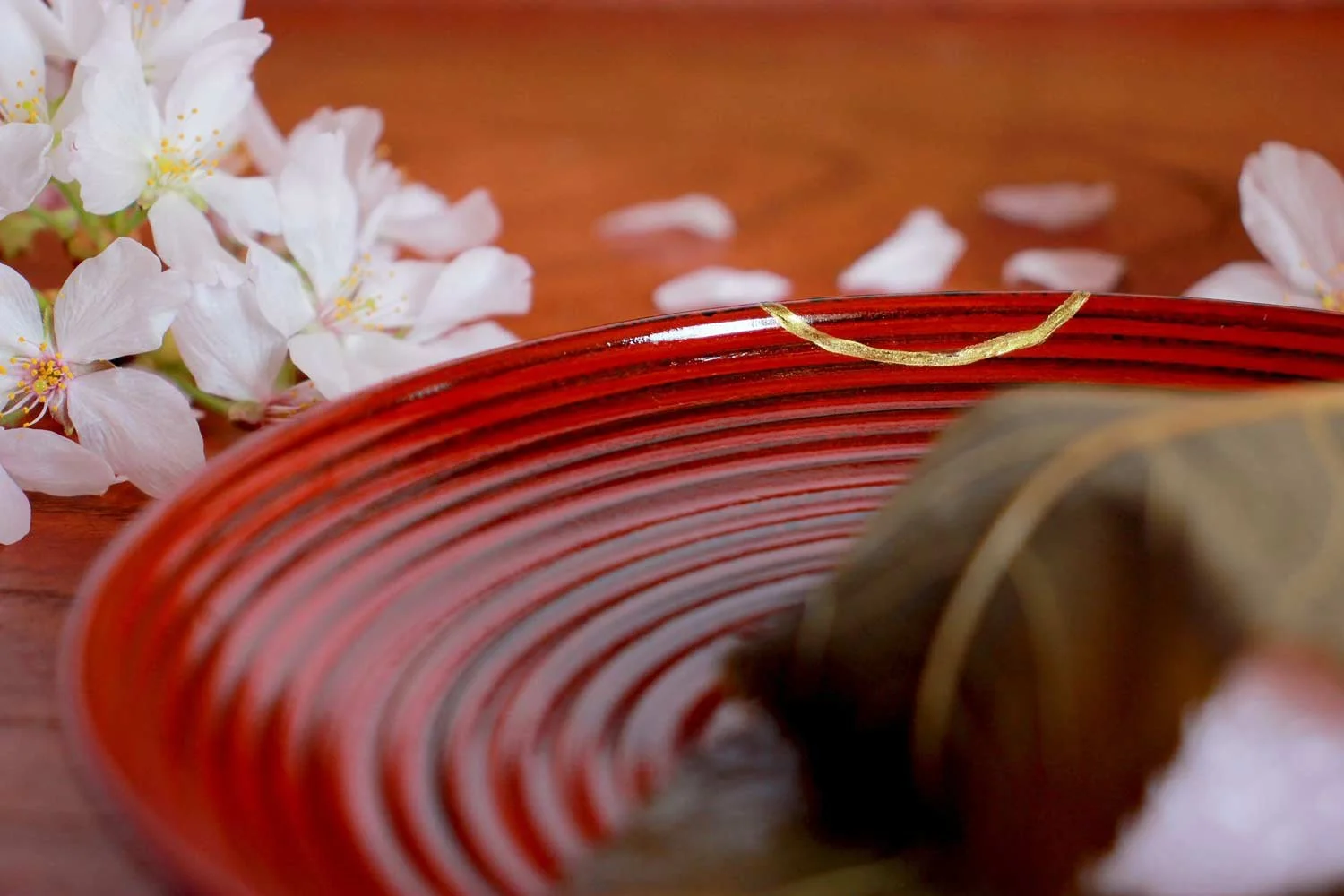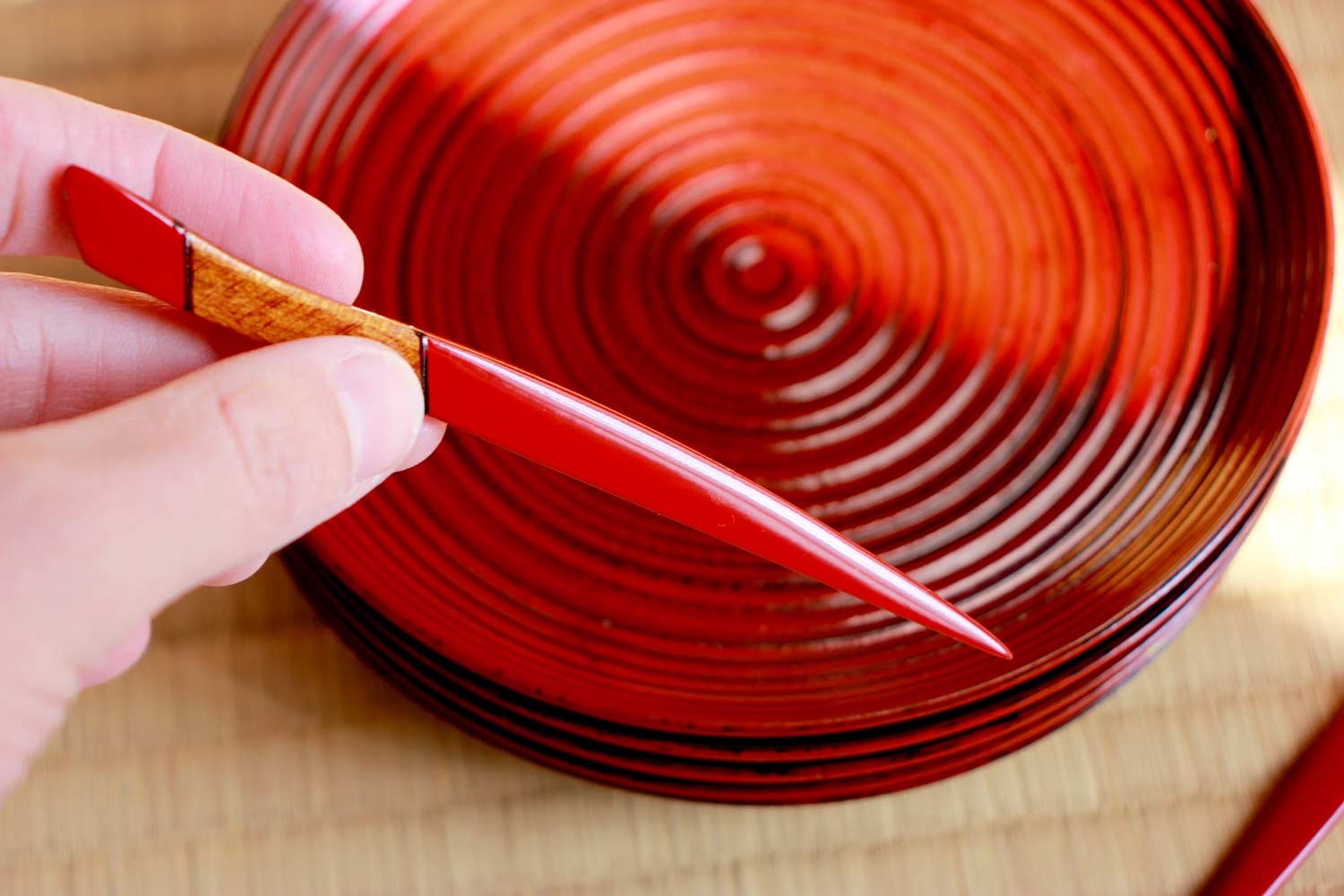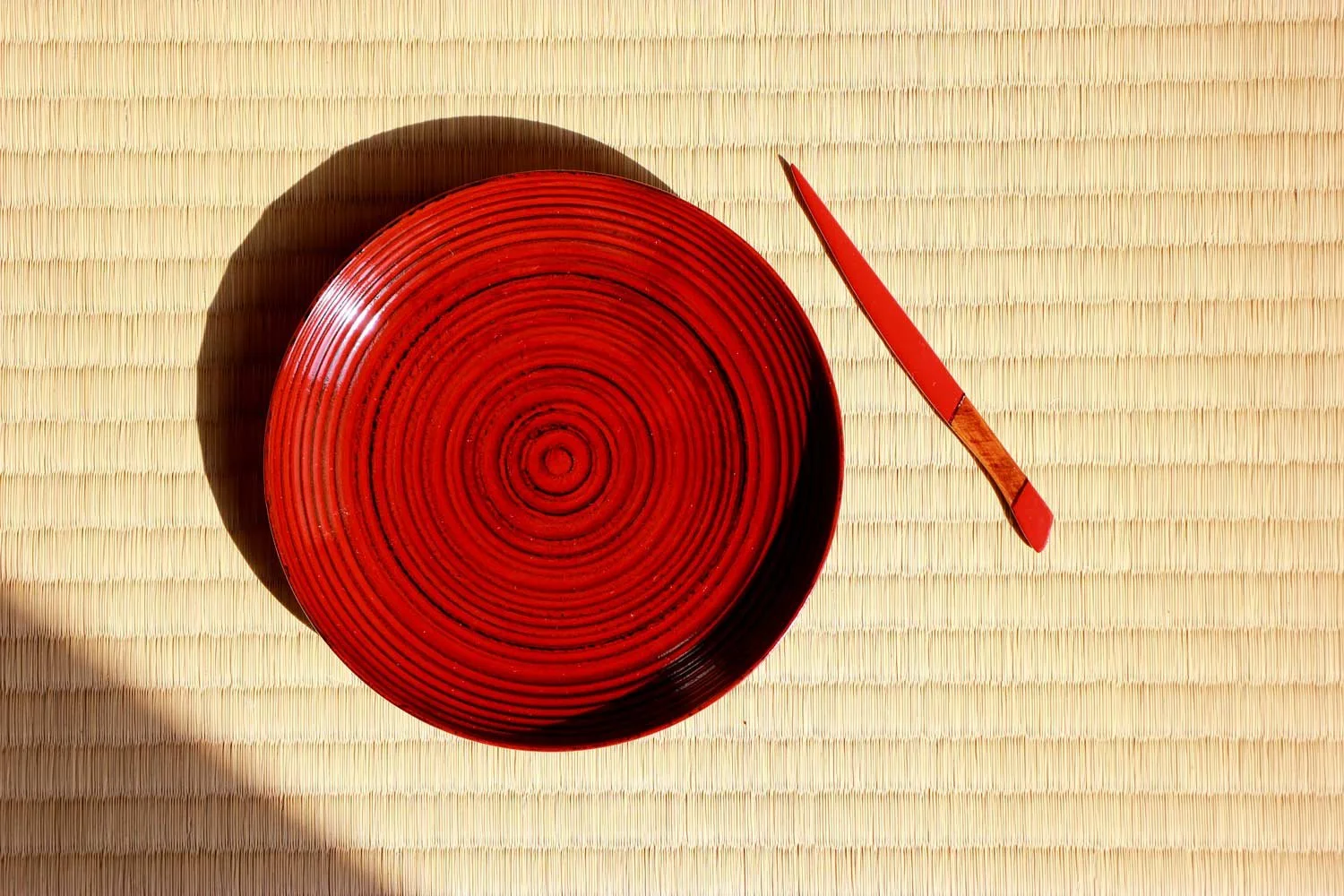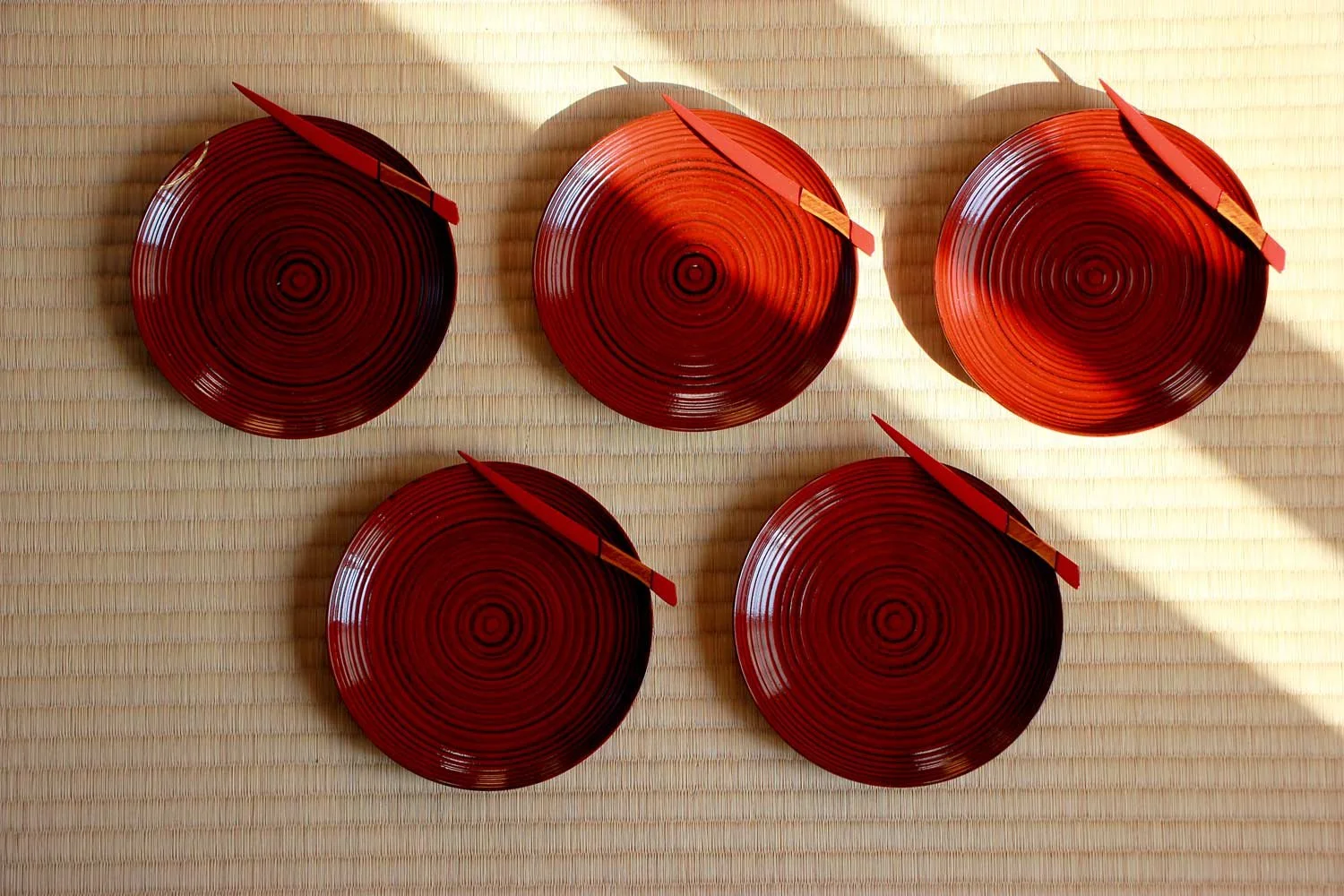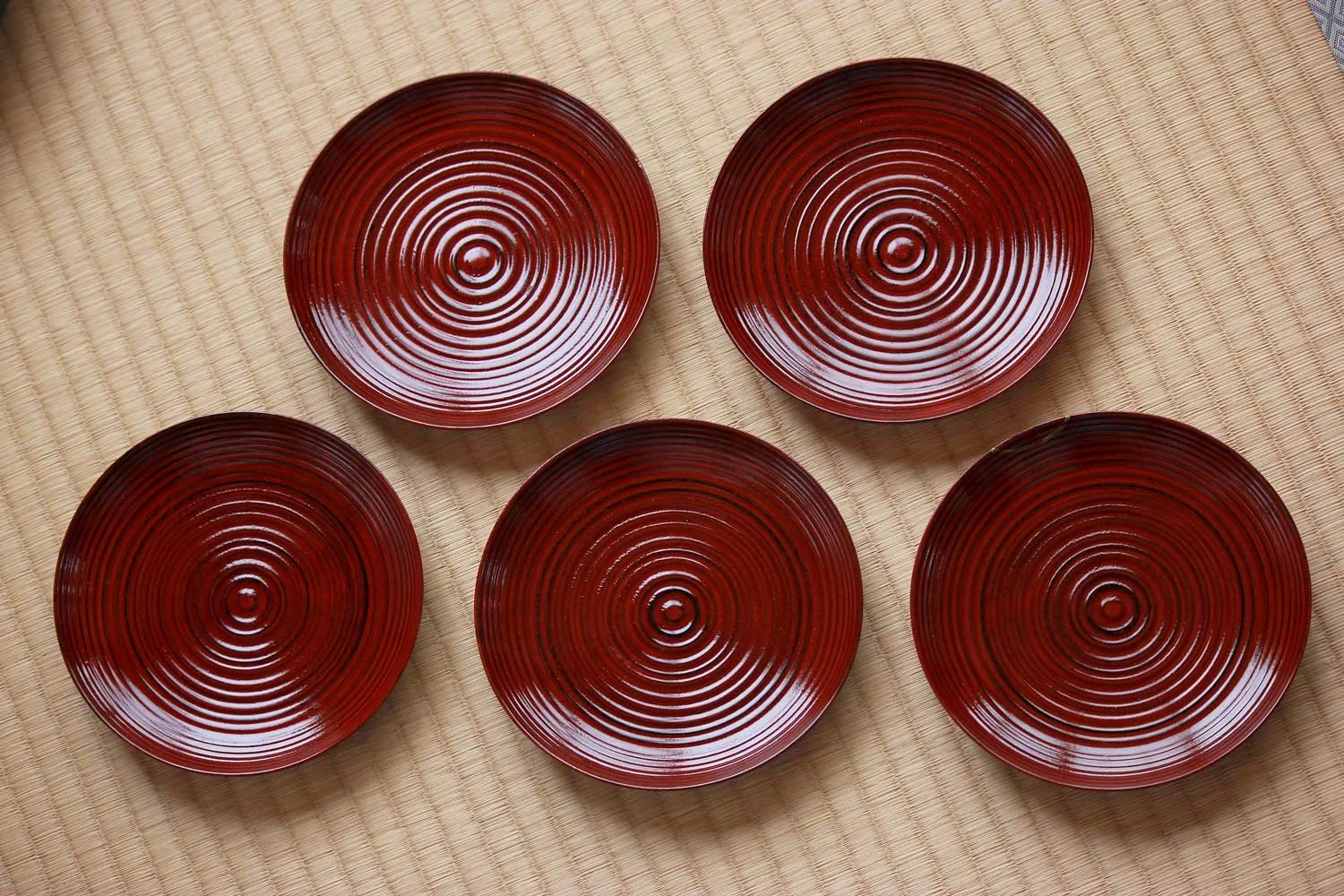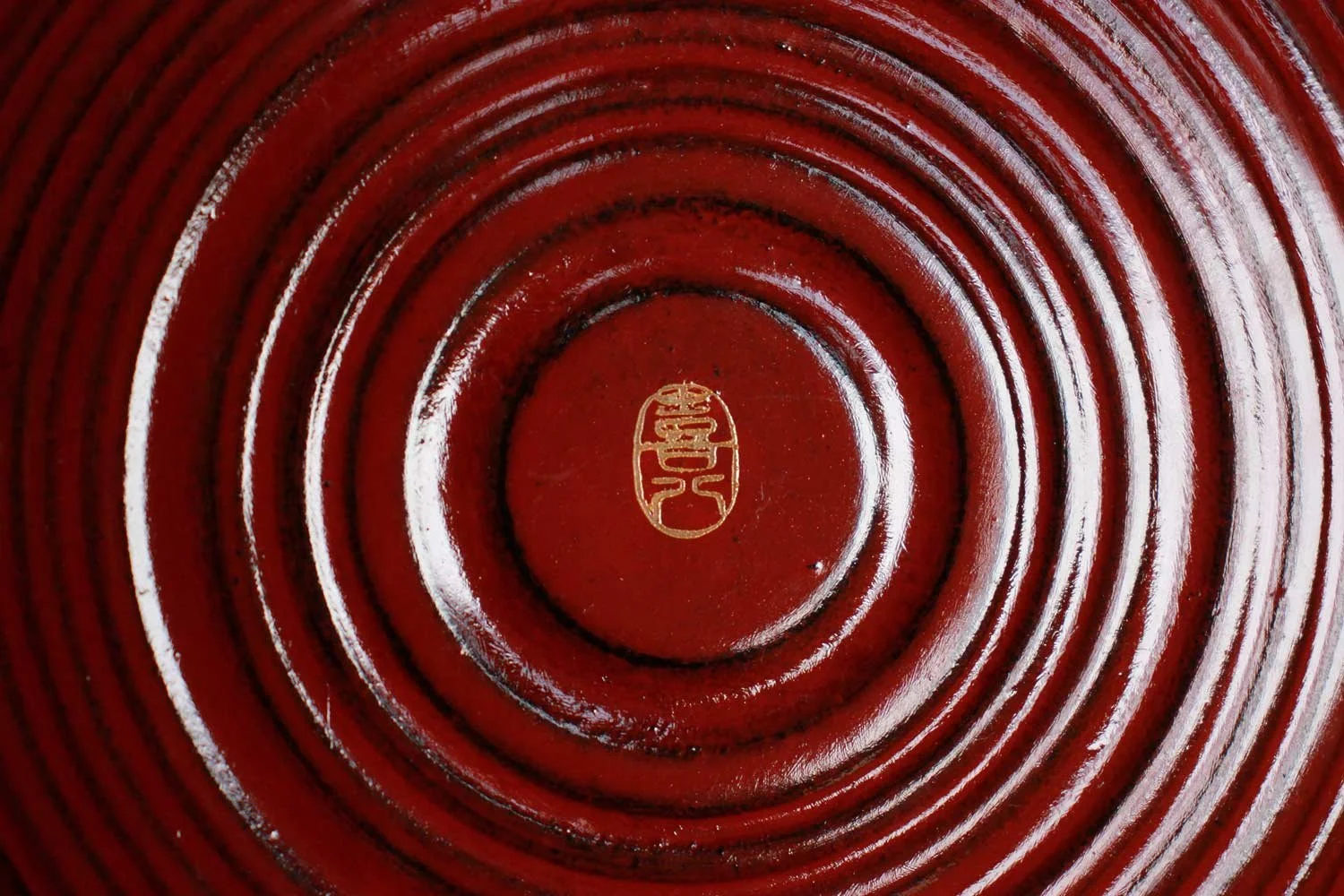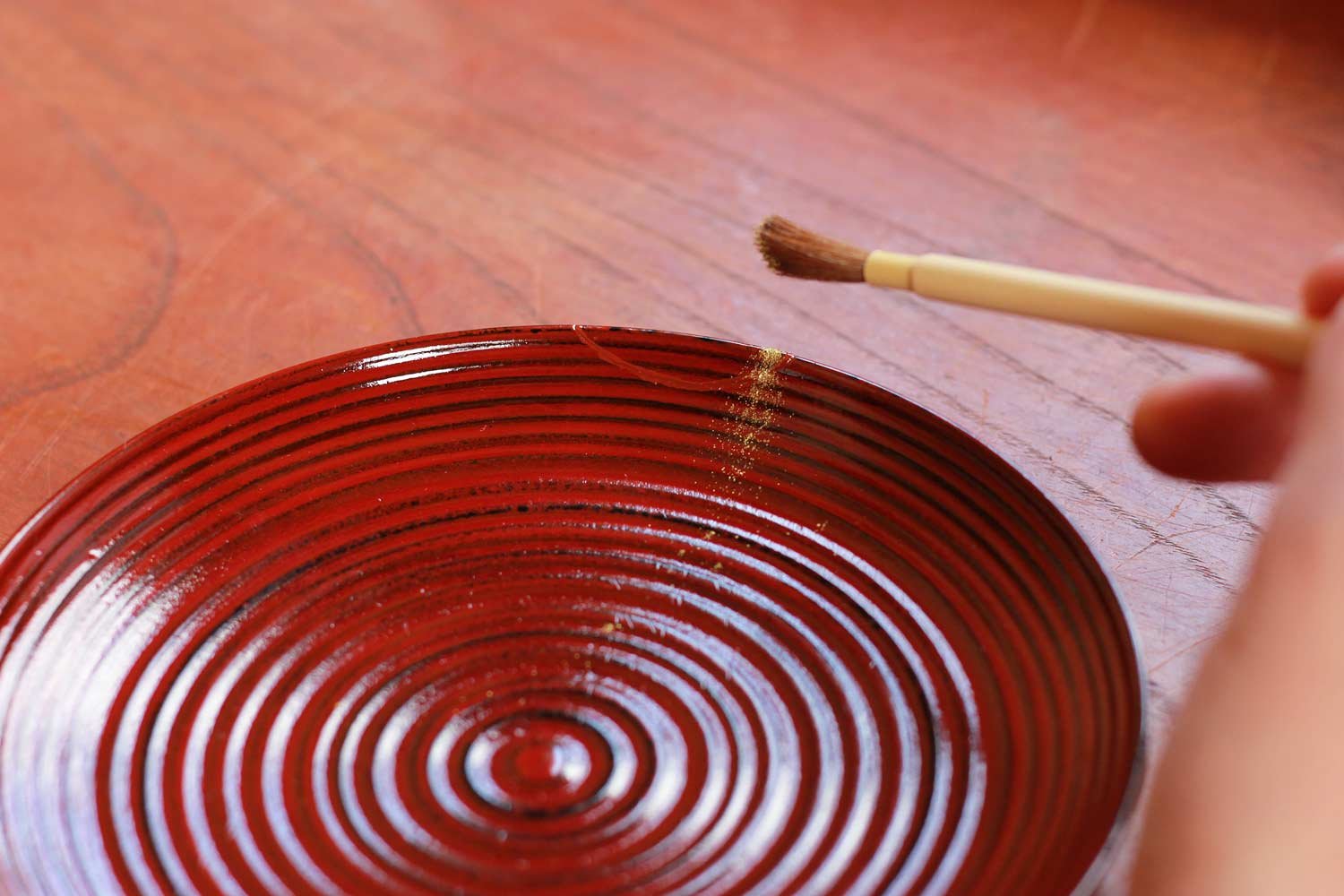Sweet plates & picks set - Lacquerware
Vintage item
Details
These 5 wooden plates are covered with traditional urushi lacquer. They are engraved with a circular pattern all over which gives them a unique texture and catch the light beautifully.
One of them has been broken and glued back by its previous owner. I covered the fixed part with lacquer and golden powder, using the technique of kintsugi. (see in the last photo)
The 5 picks are also made of wood and covered with red and black lacquer.
Dimensions
Plates diameter 15 cm, hight 1,7 cm
Picks size: 12,5 cm long, 1 cm wide
Condition
Used, in excellent condition apart from the kintsugi fixed element. No scratches or stains as you can see in the photos.
Made in Japan. Sourced in Kyoto.
Vintage item
Details
These 5 wooden plates are covered with traditional urushi lacquer. They are engraved with a circular pattern all over which gives them a unique texture and catch the light beautifully.
One of them has been broken and glued back by its previous owner. I covered the fixed part with lacquer and golden powder, using the technique of kintsugi. (see in the last photo)
The 5 picks are also made of wood and covered with red and black lacquer.
Dimensions
Plates diameter 15 cm, hight 1,7 cm
Picks size: 12,5 cm long, 1 cm wide
Condition
Used, in excellent condition apart from the kintsugi fixed element. No scratches or stains as you can see in the photos.
Made in Japan. Sourced in Kyoto.
Vintage item
Details
These 5 wooden plates are covered with traditional urushi lacquer. They are engraved with a circular pattern all over which gives them a unique texture and catch the light beautifully.
One of them has been broken and glued back by its previous owner. I covered the fixed part with lacquer and golden powder, using the technique of kintsugi. (see in the last photo)
The 5 picks are also made of wood and covered with red and black lacquer.
Dimensions
Plates diameter 15 cm, hight 1,7 cm
Picks size: 12,5 cm long, 1 cm wide
Condition
Used, in excellent condition apart from the kintsugi fixed element. No scratches or stains as you can see in the photos.
Made in Japan. Sourced in Kyoto.
What is Rentai Shikki?
Short story
It is said that this technique was invented around 1890, in the Kurume region (Prefecture of Fukuoka). At the time, the painter and lacquer artist Shogetsu Hanbe was invited to Kurume and collaborated with other artists to create this using technique, using the local bamboo production.
Bamboo is a wonderful material, strong and flexible. Its properties have led to it being widely used in the creation of domestic objects over the centuries. In this region of Japan, the production of bamboo woven baskets and trays is especially renowned.
But when Hanbe and his collaborators start to develop this technique, they want to make these crafted baskets more durable and more beautiful at the same time.
Technique
Once the basket is woven, several layers of lacquer are applied to it.
Lacquer has a very high covering power but it is applied in very thin layers, which requires very good eyes. To make sure that each layer is completely covering the previous one, it is customary to alternate lacquer colours for each layer, so that we can see if there is any place we might have missed. For example, we apply one first layer of red, which is covered by a layer of black, covered by a layer of red, then black, and so on.
This method also allows creating patterns by polishing the last layer and revealing the ones underneath.
The final layer is polished where the bamboo slats cross each other, revealing the red layer underneath in a shape that evokes flowers.
This method was especially innovative because it made it possible to reappreciate a modest everyday material that is bamboo, by offering it the brilliant finish of lacquer, and the enhancement of the weaving patterns by the play of colours.
Lacquer also brings a brand new feel to the surface it is applied on, but it is also very strong and protective. Once it is perfectly dry, lacquer protects from moisture and prevents mould to develop on the material. At a time when dehumidifiers and air-conditioning, we can imagine it was very appreciated!


